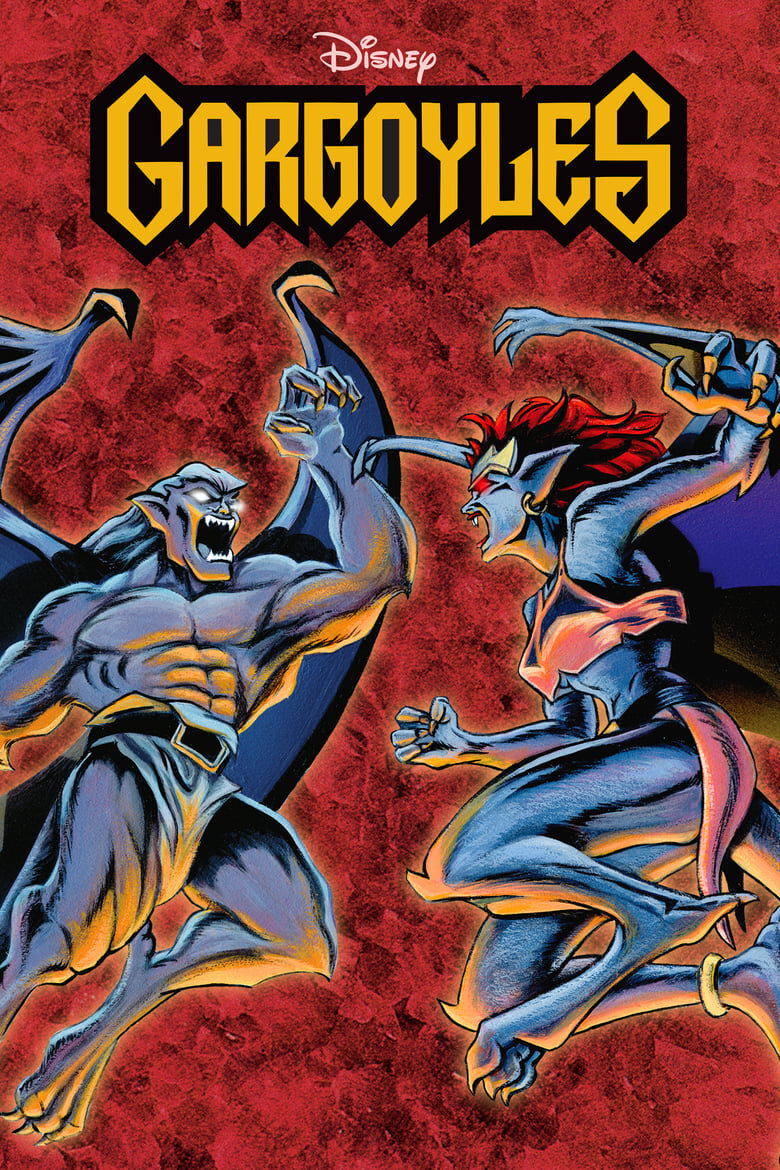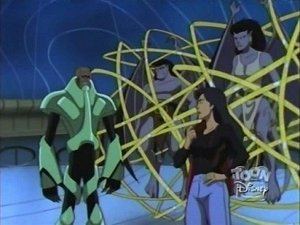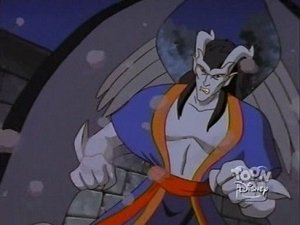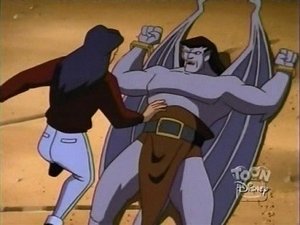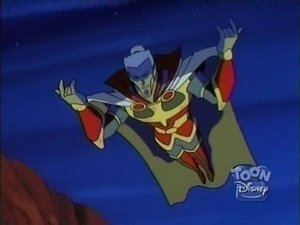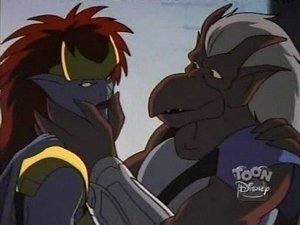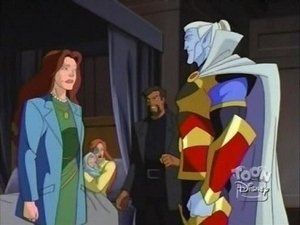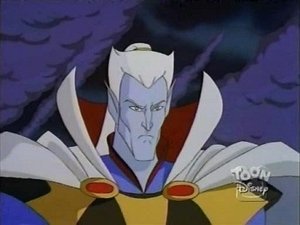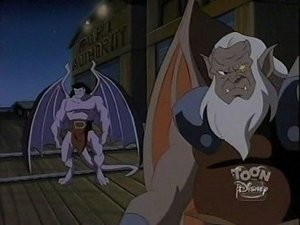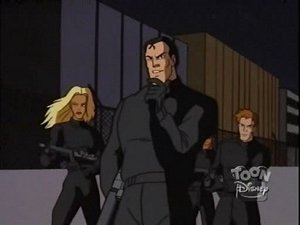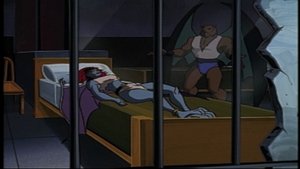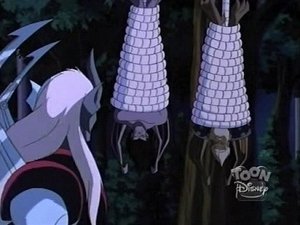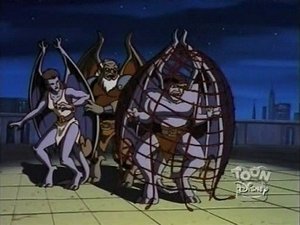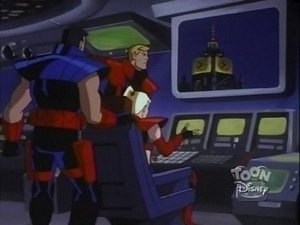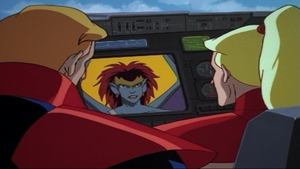“She’s the perfect programmed companion. Obedient and lovely. She’ll do anything for me.” — Thailog, crossing the line from magnificent bastard to outright predator
Oh boy. What a loaded episode. I did not see this coming.
At first glance, it looked like a rerun of old tropes. Demona was once again back on her “curse all of humanity for my own emotional instability” arc, and honestly, it felt like watching someone run in circles on a treadmill — noisy, dramatic, and going absolutely nowhere. Even Angela’s inclusion in Demona’s schemes couldn’t shake off the sense of déjà vu. Been there, betrayed that.
Then came the clones. And I groaned. Hard.
Clones in the ‘90s? It was practically a scarlet letter, thanks to Spider-Man’s
Clone Saga—a labyrinth of narrative nonsense so infamous that even whispering "clone" around a comic book store could get you dirty looks. So when this episode trotted out carbon-copy gargoyles with off-brand LA names, it smelled of tacky. Like palette-swapped Digimon or shiny Pokémon: low-effort mimicry that banks on novelty while discarding everything compelling about the originals. But to this episode’s credit, it knows exactly how hollow these copies are — that’s the whole point. They’re not characters; they’re symbols of obedience, of stolen identity, of what happens when you manufacture loyalty instead of earning it.
And speaking of manufactured loyalty — let’s talk about
that twist. The elephant, no, the kaiju in the room: Thailog’s “perfect companion.”
From the moment Thailog first touched Elisa’s hair way back when, I knew this guy wasn’t just a villain. He was something
worse. He wasn’t in it for chaos or conquest alone — he craved control, not just over the battlefield, but over people. Over minds. Over bodies. His need to dominate drips off every word, every smirk, and in this episode, it escalates to a whole new level of grotesque. Enter Delilah. A disturbing genetic cocktail (
no spoilers, but YIKES), engineered solely to be obedient, lovely, and pliable. A living sex doll that calls Thailog her "Master," in a children’s cartoon. On a
Disney show. I nearly spit out my drink.
It’s not just creepy — it’s
deliberate. This isn’t subtext, it’s billboard-sized. It’s a scene pulled straight from the dossiers of real-world criminal profiles — human traffickers, cult leaders, abusers. It’s the kind of predator whose evil isn’t abstract or magical; it’s
recognizable. And honestly, I shouldn’t be surprised. Comic fans have seen this before — just look at the Jackal, Miles Warren, whose obsession with cloning Gwen Stacy wasn’t about love or science, but pure, unhinged possession. The moment you bring clones into the mix, domination almost always comes with it. Thailog isn’t breaking new ground so much as digging deeper into a disturbingly established pattern: when someone creates life just to own it, they’re not playing God — they’re playing abuser. And Gargoyles has the guts to stare that darkness right in the face.
What’s wild is that Disney
let this air. In the same era where networks were busy fighting over whether kids could say “sucks” on Saturday morning TV and whether firing a real gun is allowed on Fox Kids, Greg Weisman turned around and dropped a full-on domination allegory into prime-time animation. Bruce Timm’s
Batman: The Animated Series dared to explore psychosis, trauma, and obsession — and even he didn’t roll out something this overtly sexual and controlling, despite later controversy over the Barbara-Bruce dynamic in
Batman Beyond comics. By comparison, Thailog's "companion" concept makes that look like G-rated fluff. This was a villain who wasn’t just evil — he was
violently predatory, and the writing refused to sanitize it.
It’s the kind of creative risk you never see anymore, especially in the animation medium that usually keeps its gloves on when it comes to moral ambiguity. But
Gargoyles took the gloves off. And in doing so, it gave us a villain so viscerally unsettling, so close to real-world depravity, that you stop seeing him as a cartoon character and start recognizing him as the kind of monster who actually exists in our world — the ones with charm, charisma, and no conscience.
Thailog doesn’t just scare you. He
sickens you. And that’s damn good writing.
But the twisted dynamic between him and Demona is where the episode truly elevates. Their relationship — once a union of mutually assured delusion — unravels here in painful detail. Demona, for all her rage and trauma, is exposed as heartbreakingly gullible in her pursuit of vengeance. Her obsession has always blinded her, but now it’s cost her the only glimmer of real connection she had left — Angela. And for once, the tired vengeance narrative is finally
about something. We see Demona’s ideology collide with reality, and the result is not just explosive, it’s
humanizing. She's still a monster, but she's a monster who
remembers she has a heart, just in time to break it.
Yes, some logic gaps do linger. The heroes' reaction to a certain character's fate makes no sense, which undercuts the emotional punch for those paying attention. But even with that in mind, the
symbolism of that ending — Angela’s final words, Demona’s ambiguous fate — still lands. It’s less about whether someone lived or died, and more about what that sacrifice meant.
In short: this episode takes the well-worn tropes of cloning, tragic villains, and brainwashed henchmen and filters them through an unflinching lens of power, control, and emotional consequence. What could have been just another “evil twin” gimmick turns into something far more unnerving and tragic — a story about what happens when revenge eats away everything else you are, and the horrifying lengths manipulators will go to maintain dominance.
It’s not flawless, but it’s daring. It’s uncomfortable in the right ways. And it reminds you that even in a kids’ show, sometimes the scariest monsters don’t need fangs — just control.
